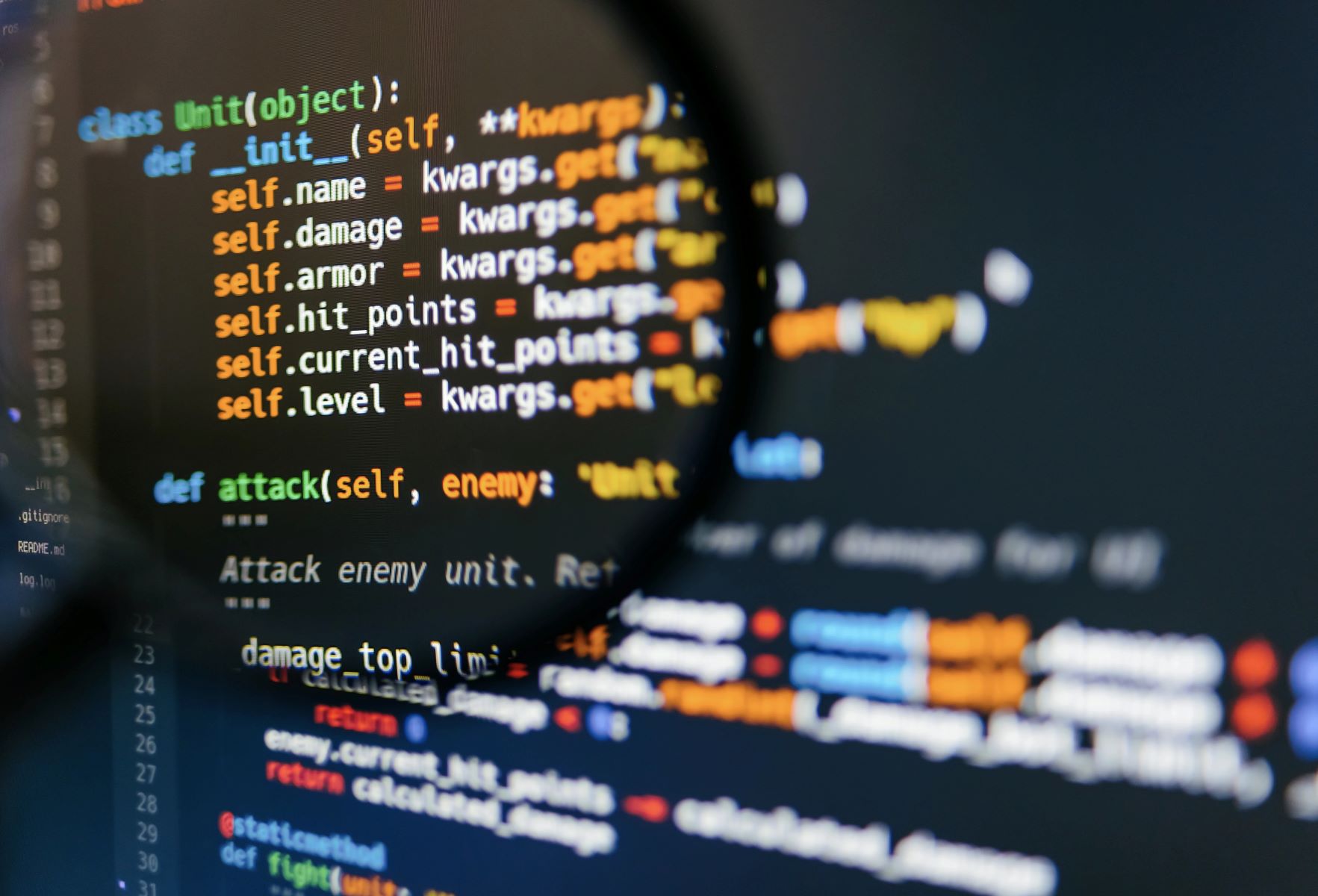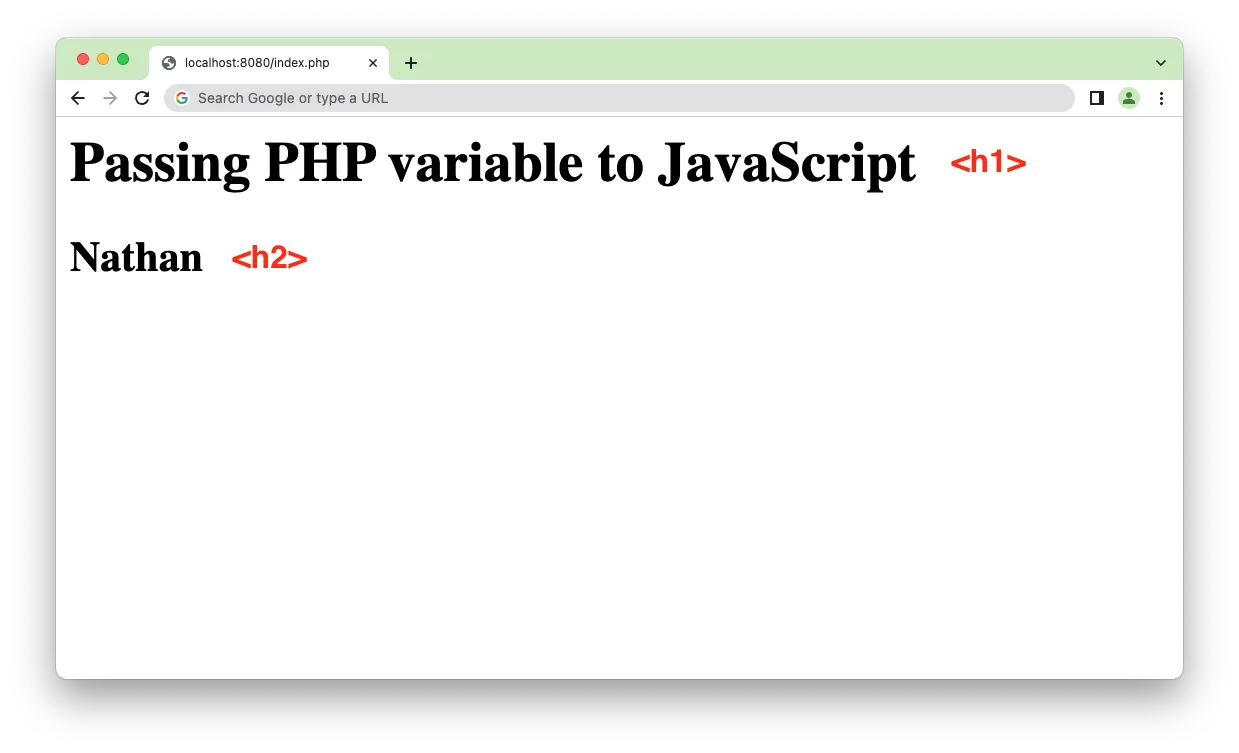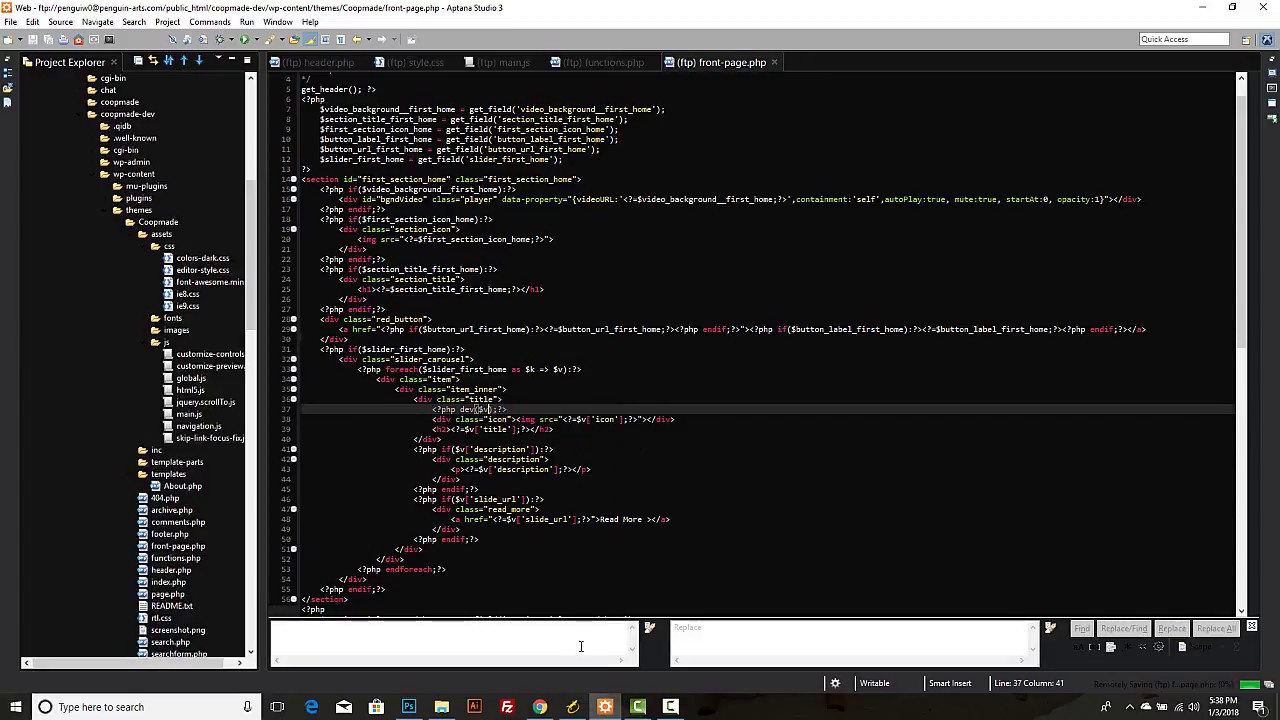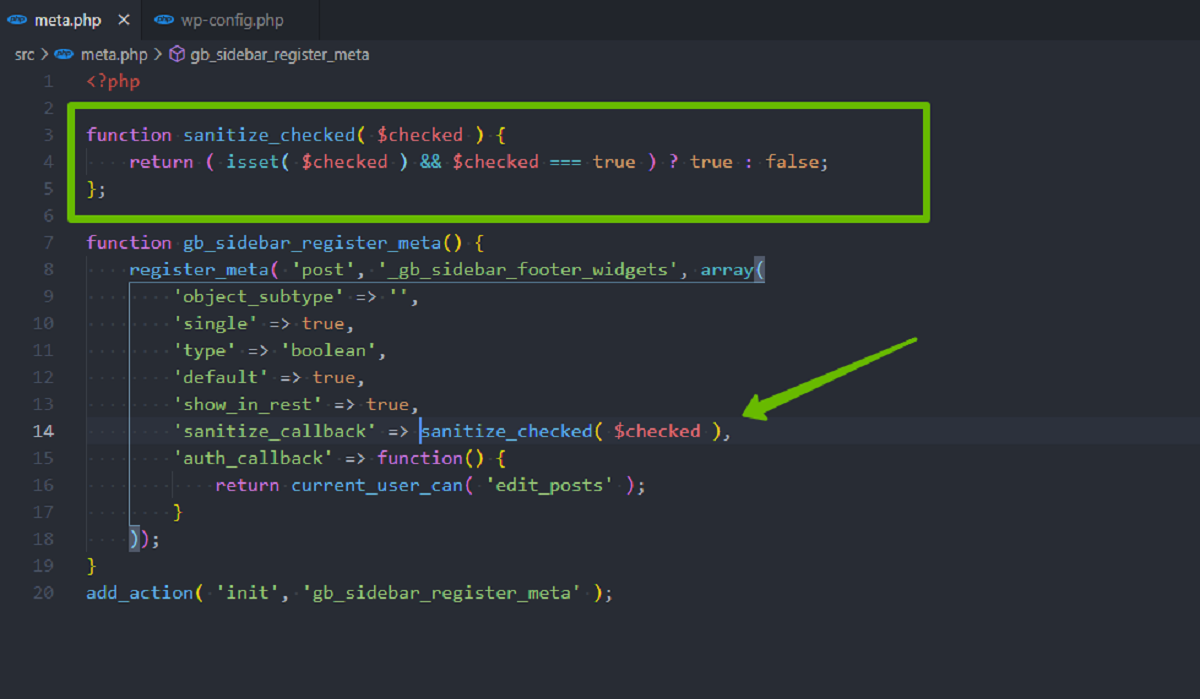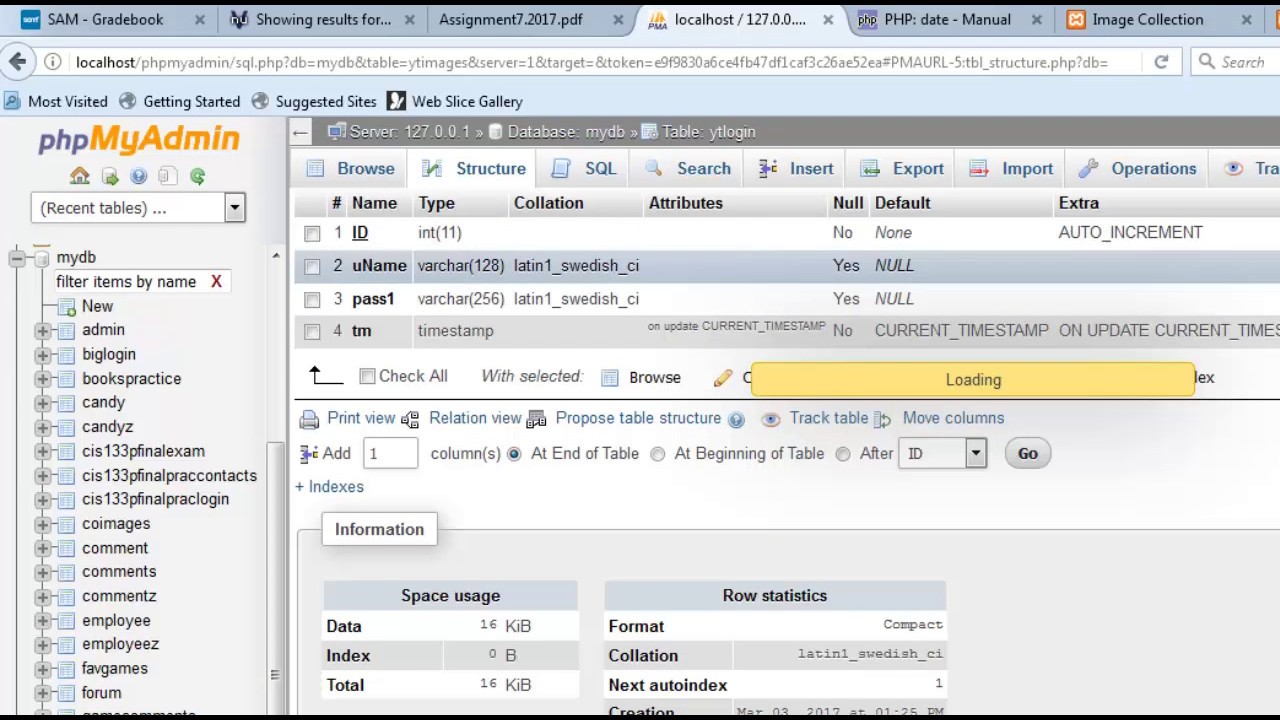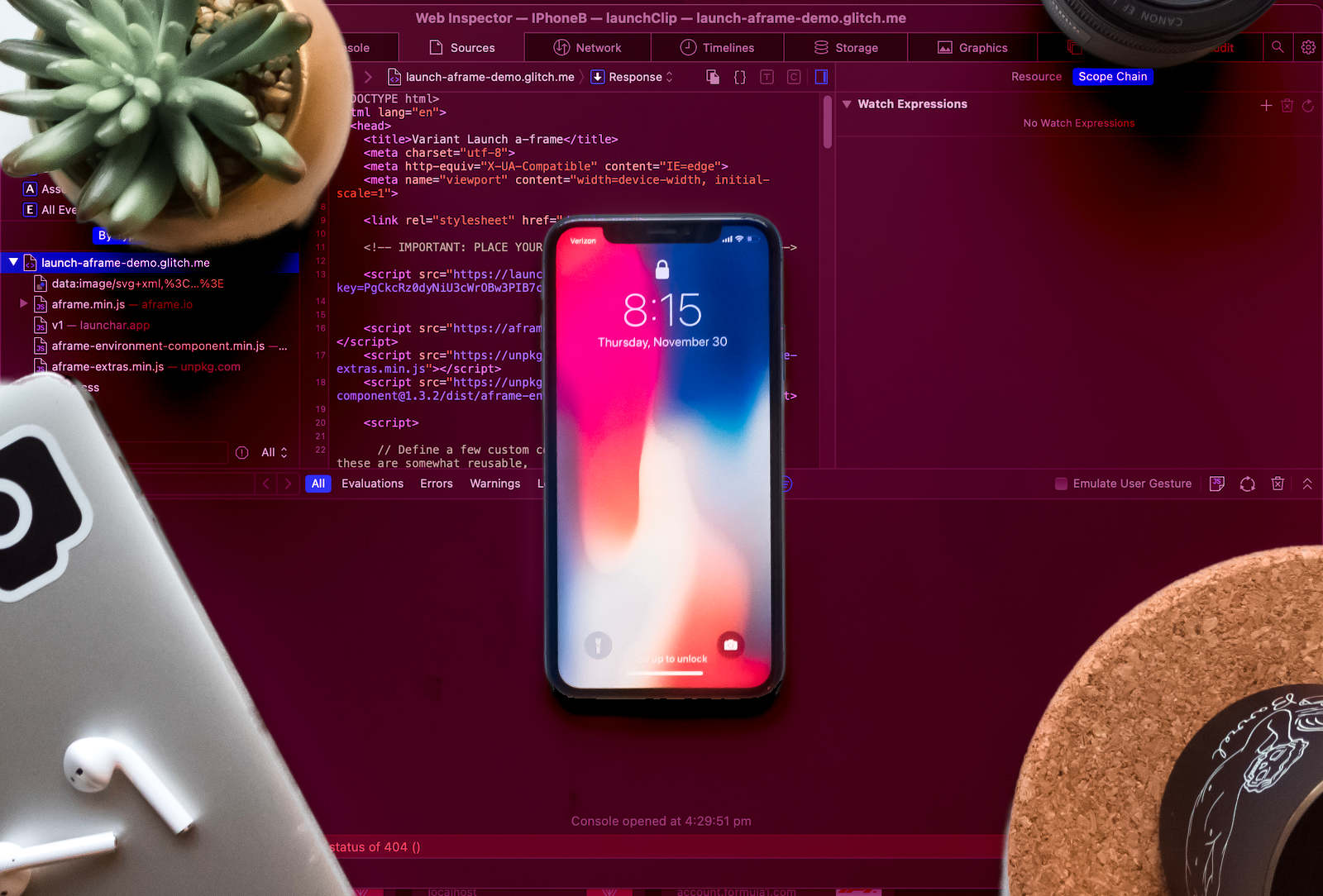Introduction
When it comes to coding, variables play a crucial role in storing and manipulating data. Whether you’re a beginner or an experienced programmer, understanding variables is essential to writing efficient and functional code.
A variable can be thought of as a container that holds a value. This value can be a number, a piece of text, or even a complex data structure. By assigning a value to a variable, programmers can use and manipulate that value throughout their code.
Variables are vital for building dynamic applications, as they allow you to store and retrieve information as needed. They also enable programmers to write code that can adapt to different scenarios by dynamically changing the values held by variables.
In this article, we will explore the concept of variables in coding, delve into the different types of variables, understand how to declare and assign values to variables, and discuss the scope and naming conventions of variables. We will also touch on best practices for using variables effectively in your code.
Whether you’re working with JavaScript, Python, Java, or any other programming language, a solid grasp of variables is fundamental. So, let’s dive in and unravel the world of variables in coding!
Definition of a Variable
In coding, a variable is a named placeholder that can hold different values. As the name suggests, the value stored in a variable can vary or change as the program runs.
Think of a variable as a labeled storage location in the computer’s memory. This storage location has a name, which allows programmers to access and manipulate the value stored within it.
Variables can hold various types of data, such as numbers, strings (text), boolean values (true or false), or more complex data structures like arrays or objects. The type of data a variable can hold depends on the programming language you are using and the specific variable declaration.
By using variables, programmers can store and retrieve data, perform calculations, make decisions based on the stored values, and create dynamic and interactive applications.
For example, you can declare a variable called “age” to store a person’s age:
int age;
Later, you can assign a specific value to the variable:
age = 25;
Now, the variable “age” holds the value 25, and you can use it in your code to perform various operations or comparisons based on the person’s age.
Variables provide flexibility and enable programmers to write code that can adapt dynamically to different situations. Instead of hard-coding specific values or repeating them multiple times, variables allow for more efficient and maintainable code.
Understanding the concept of variables is fundamental to effectively writing code, as they are the foundation for storing and manipulating data throughout your programs.
Types of Variables
In coding, variables can be categorized into different types based on the kind of data they can hold. The type of a variable determines the range of values it can store and the operations that can be performed on it.
Let’s explore some common types of variables:
- Numeric Variables: Numeric variables are used to store numbers. They can be further divided into different subtypes, such as integers (whole numbers), floating-point numbers (numbers with decimal points), and more specialized types like double or long.
- String Variables: String variables are used to store text or a sequence of characters. They are often enclosed in quotation marks or double quotes.
- Boolean Variables: Boolean variables can hold one of two values: true or false. They are commonly used in conditional statements and decision-making processes.
- Array Variables: Array variables are used to store multiple values of the same type in a single variable. Arrays allow you to group related data together and access individual elements using an index.
- Object Variables: Object variables are used to store complex data structures that contain multiple properties and methods. Objects allow for more advanced data manipulation and customization.
The specific types of variables available may vary depending on the programming language you are using. Some languages, like JavaScript or Python, have dynamic typing, meaning that a variable can hold different types of values throughout its lifetime. Other languages, like Java or C++, have static typing, where the variable’s type is declared and cannot be changed later.
Understanding the different types of variables is crucial for selecting the appropriate type based on the data you need to store and manipulate. Choosing the right variable type ensures efficient memory allocation and optimizes the performance of your code.
Each type of variable has its own set of rules and capabilities, so familiarize yourself with the specific syntax and requirements of the programming language you are using.
Declaring a Variable
Before you can use a variable in your code, you need to declare it. Declaring a variable involves specifying its name and type, which informs the compiler or interpreter about the kind of data the variable will hold.
The syntax for declaring a variable may vary slightly depending on the programming language, but the general format is as follows:
data_type variable_name;
Let’s break down this syntax:
- Data Type: This indicates the type of data the variable can hold, such as int for integers, float for floating-point numbers, or string for text.
- Variable Name: This is the identifier or label you give to the variable. Choose a meaningful name that reflects the purpose or content of the variable.
For example, if you want to declare a variable called “count” to store the number of items in a shopping cart, you might declare it like this:
int count;
Now, the variable “count” is declared as an integer and is ready to hold integer values.
Some programming languages allow you to initialize a variable at the time of declaration by assigning it an initial value. This can be useful if you already know the value the variable should start with. For example:
int count = 0;
In this case, the variable “count” is declared as an integer and initialized with a value of 0.
It’s important to note that once a variable is declared, it can be used throughout your code within its scope (which we will discuss later). Ensure that you declare variables before using them to avoid any potential errors.
By declaring variables, you let the programming language know about the existence and properties of the variables, allowing you to store and manipulate data efficiently in your code.
Assigning a Value to a Variable
After declaring a variable, the next step is to assign a value to it. Assigning a value to a variable allows you to store specific data within that variable.
The syntax for assigning a value to a variable is as follows:
variable_name = value;
Let’s break down this syntax:
- Variable Name: This is the name of the variable to which you want to assign a value.
- Value: This is the actual data or expression that you want to store in the variable.
For example, let’s say you have a variable called “name” and you want to assign a value of “John” to it. The assignment would look like this:
name = "John";
Now, the variable “name” holds the value “John” and can be referenced and used throughout your code.
It’s important to note that the value you assign to a variable must be of a compatible type. For instance, if you have a variable declared as an integer, you cannot assign a string or a boolean value to it without appropriate type conversion.
Depending on the programming language, there may be additional operators available for assigning values to variables. For example, the increment operator (++) or the addition assignment operator (+=) can be used to increment the value of a variable.
It’s good practice to assign meaningful and appropriate values to variables that accurately represent the data they are intended to hold. This enhances code readability and reduces the potential for errors.
By assigning values to variables, you can store and manipulate specific data within your code, allowing for dynamic and adaptable programming.
Using Variables in Code
Variables are the building blocks of any program, and they allow us to work with and manipulate data in our code. Once we have declared and assigned values to variables, we can use them in various ways within our code.
Here are some common use cases for using variables in code:
- Calculation and Manipulation: Variables are often used in mathematical calculations, such as performing arithmetic operations or storing intermediate results. We can use variables to store values, perform calculations, and update the variables with the results.
- Conditional Statements: Variables play a crucial role in conditional statements, such as if-else statements or switch case statements, where different actions are taken based on the value of a variable. By comparing the value of a variable with a condition, we can control the flow of our code.
- Looping and Iteration: Variables are frequently used in loops to keep track of the iteration count or to control the loop’s execution. We can update the variables within the loop to modify their values and influence the loop’s behavior.
- Input and Output: Variables are often used to store user input or to hold data received from external sources. We can assign the input values to variables and use them as needed in our code. Similarly, we can use variables to store and format data that will be displayed as output.
- Function Parameters and Return Values: Variables are passed as parameters to functions, allowing us to send data to the function for processing. Functions can also have variables as their return values, allowing us to retrieve and use the computed results.
By utilizing variables effectively in our code, we can create dynamic and interactive programs that can handle different scenarios and adapt to changing conditions.
Remember to use descriptive variable names that make it clear what data they represent. This improves code readability and makes it easier for others (including yourself) to understand and maintain the code.
Overall, variables are fundamental in programming and empower us to work with data, make decisions, and perform complex operations, giving our code the flexibility and functionality it needs.
Scope of Variables
The scope of a variable refers to the region of code where the variable is accessible and can be used. Understanding variable scope is essential for writing clean and bug-free code.
Variables can have different scopes depending on where they are declared within your code. Here are the common scopes of variables:
- Global Scope: Variables declared outside any function or block have a global scope. They can be accessed from anywhere within the code, including inside functions. Global variables are typically declared at the top of the file or in a separate global variables section.
- Local Scope: Variables declared within a function or block have a local scope. They are accessible only within that function or block and cannot be accessed from outside. Local variables are created when the function or block is entered and destroyed when it is exited.
- Block Scope: Some programming languages, like JavaScript, have block scope, where variables declared within a block (inside curly braces {}) have a scope limited to that block. Block-scoped variables are accessible only within that block and any nested blocks within it.
It’s important to note that variables declared in one scope can have the same name as variables declared in another scope without causing conflicts. This is because each scope creates a new instance of the variable.
When multiple variables with the same name exist in different scopes, the one with the narrowest scope (innermost block or function) takes precedence and is accessed within that scope. This is known as variable shadowing.
Understanding and properly managing variable scope is crucial for preventing unintended behavior and name clashes in your code. Avoid using global variables excessively, as they can lead to code that is difficult to understand and maintain. Instead, favor local variables whenever possible, as they have a more limited scope and are less prone to unintended side effects.
By understanding and applying proper variable scoping rules, you can write clean and modular code that is easier to read, debug, and maintain.
Naming Conventions for Variables
Naming variables is a crucial part of writing clean and readable code. Using consistent and meaningful names for your variables helps improve code clarity and makes it easier for others to understand your program. Here are some common naming conventions for variables:
- Use descriptive names: Choose names that accurately describe the purpose or content of the variable. Avoid vague or generic names that can lead to confusion.
- Follow camelCase or snake_case: In camelCase, the first letter of the variable name is lowercase, and subsequent words are capitalized (e.g., myVariableName). In snake_case, all letters are lowercase, and words are separated by underscores (e.g., my_variable_name). Choose the convention that is consistent with the language and community practices you are working with.
- Avoid single-letter names: Single-letter variable names can be ambiguous and make the code harder to understand. Instead, use meaningful names that convey the purpose of the variable.
- Be consistent: Use the same naming conventions throughout your codebase. Consistency enhances code readability and makes it easier to navigate and maintain.
- Avoid reserved words: Avoid using reserved keywords or language-defined functions as variable names, as they have special meanings in the programming language and can cause conflicts or errors.
- Use proper capitalization and spelling: Be mindful of proper capitalization and spelling to avoid confusion and typos in your variable names.
It’s important to note that different programming languages and communities may have their own specific naming conventions. It’s good practice to adhere to the conventions followed by the language or community you are working with.
Naming variables in a clear and consistent manner not only improves code readability but also aids in troubleshooting and collaboration with other developers. By choosing descriptive and meaningful names, you make your code more self-explanatory and easier to maintain over time.
Best Practices for Using Variables
Effectively using variables is crucial for writing clean and efficient code. By following these best practices, you can ensure that your variables are used properly and contribute to the overall quality of your code:
- Declare variables where they are needed: Declare variables as close to their usage as possible. This improves code readability and helps avoid accidental misuse or unintended side effects.
- Initialize variables with meaningful values: Whenever possible, initialize variables with appropriate default or initial values. This helps prevent unexpected behavior or errors when using the variables later in the code.
- Avoid using magic numbers: Instead of using hard-coded numeric values directly in your code, assign them to variables with descriptive names. This makes the code more readable and allows for easier maintenance and adjustment of values when needed.
- Avoid excessive use of global variables: Global variables can make code difficult to understand and maintain. Whenever possible, limit the scope of your variables to the smallest necessary scope, such as local to a function or within a specific block.
- Avoid variable name reusing: Reusing variable names can lead to confusion and introduce bugs in your code. Choose distinct names for each variable to maintain clarity and prevent unintended overwriting of values.
- Keep variable names concise but meaningful: Choose variable names that are clear and descriptive, conveying the purpose and content of the variable. Aim for a balance between brevity and understandability.
- Regularly review and clean up unused variables: Periodically review your codebase and remove any variables that are no longer used. Removing unnecessary variables reduces clutter and improves code efficiency.
- Document variable usage when necessary: In complex or unclear situations, consider adding comments or documentation to explain the purpose and intended usage of variables. This helps other developers understand the logic and use the variables correctly.
By following these best practices, you can write cleaner, more maintainable code that is easier to understand and debug. Consistently using variables in a thoughtful and disciplined manner contributes to the overall quality and efficiency of your programming projects.
Conclusion
Variables are fundamental components of coding that allow us to store, manipulate, and access data in our programs. By understanding how to declare, assign values to, and use variables effectively, you can write clean, adaptable, and efficient code.
In this article, we explored the definition of variables and their role in coding. We discussed the types of variables available, such as numeric, string, boolean, array, and object variables. Additionally, we covered the importance of variable scope and the impact it has on the accessibility and lifespan of variables within our code.
Naming conventions for variables are crucial for code readability, and we learned about the best practices for choosing descriptive and consistent variable names. We also discussed the importance of initializing variables with meaningful values and avoiding the excessive use of global variables.
By following these best practices and incorporating variables into our code thoughtfully, we can create programs that are easier to understand, maintain, and debug. Variables empower us to build dynamic applications that can handle different scenarios and adapt to changing conditions.
As you continue your coding journey, remember to utilize variables effectively, ensuring that they are properly declared, assigned values, and used within the appropriate scope. With a solid understanding of variables in coding, you are well-equipped to write efficient and functional code across various programming languages.







